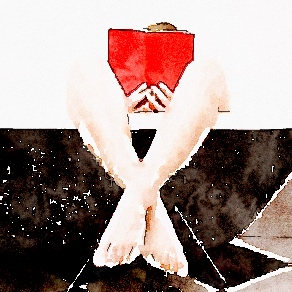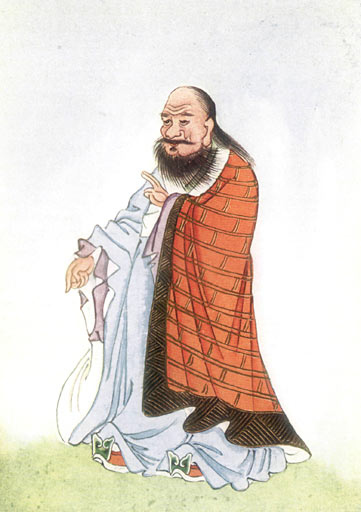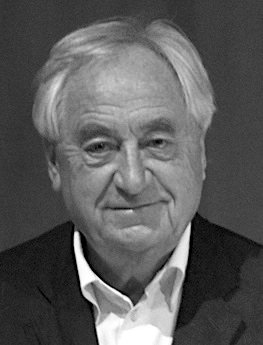
Dear Doctor,
I spent the last week organising the photos I took in the summer and early autumn. My husband and I went hiking and we took the children to a couple of short holiday breaks: to Lyme Regis, to Jersey and to Gibraltar.
On our last fling in the October half-term I still managed to chalk up 18 kms on the Rock in one day and got to see the monkeys and the tunnels, the cave and the view towards Africa – the closest I’ve ever got to another continent… 18 kms, over the course of a whole day, with lots of rest; I was quite impressed with myself although it’s a far cry from the times when I could hike 30 kilometres a day on the South West Coast Path, only three years ago, without collapsing at the end. Of course, that had been before I met you. Just two months before I was diagnosed with final stage cancer.
Jersey was beautiful. We hiked the north coast ending on the beach in Plémont Bay, going for a swim and rinsing off the sea salt from our skin under the waterfall in a cave. There were some beautiful sunny days and we saw dolphins in the sea jumping around our boat. This is the one thing we can thank coronavirus for: we’d never have gone to Jersey if we could have gone to Spain or Italy instead.
Coronavirus was a real blow for us this year, as you can imagine. I was relatively well and I knew I was running out of time, yet I couldn’t do what I wanted to do: couldn’t travel, couldn’t visit my family, couldn’t even go a museum or to eat out. I was stuck in our house in London, in lockdown for months; so much about enjoying the last year of my life. The November lockdown was particularly galling: after we returned from Gibraltar, I had literally nothing else left for me in life but going swimming while I still could. Instead, once again I was forced to sit at home, while my strength slowly ebbed away. I watched the leaves on the trees in the garden turning rusty; mellow hues of yellow and red mingling with the still surviving bright green reminded you that autumn was here. I listened to the horrid screeching of the crows. Nature was slowly dying, just like I am; I would have liked to see the snowdrops come out next year.
The swimming pool has since reopened but I’m no longer able to go to swim. So I’m sitting here, listening to the rain, trying to organise the photos and remembering Jersey and Gibraltar, the fossil coast in Lyme Regis and swimming in the sea. Remembering the laughter of my daughters.
Our last holidays.
Doctor, I would really like to thank you for these holidays because without the treatments that you prescribed me in the last three years I would not have been alive to go on them.
I would like to thank you; but the words stick in my throat. Because if it was up to you, I wouldn’t have been able to hike along the north coast of Jersey; I would have not been able to swim in the sea. I would have been in hospital, choking while I was being administered a chemotherapy agent that I became dangerously allergic to many months ago; I would have been lying in bed, looking out at the sky through my bedroom window, unable to get up; or I would have been vomiting convulsively into the blue wash up bowl that three years ago found its way from under the kitchen sink to under our bed and never had a chance to go back. Or, possibly, I’d be screaming hysterically at my husband or my daughters, half crazed with this unspeakable suffering that your treatments had repeatedly inflicted on me.
Each time when your treatments reduced me to a quivering helpless blob of jelly, I scraped myself off the floor, rebuilt my muscles and forced my dying brain cells to reanimate themselves. Fourteen times through fourteen rounds of chemotherapy. Fourteen weeks when I was too weak to rise from bed, to hold a book or to sit without support on the toilet. Twenty-eight weeks when I could only negotiate the stairs in our house on all fours. And in between? Trying to raise the children, trying to pretend that I was still a wife, working beyond my strength trying not to lose my job. Because even with the NHS, cancer is expensive. And if you’re under 55, you’re not even entitled to ill health pension although your boss is entitled to dismiss you if you’re too ill to go to work.
When we started all this, you told me that all my hair would fall out due to the chemo but it would grow back. You were right: it did grow back. Sort of. I always had thick, abundant, healthy hair; what grew back was not its original colour, not its original texture – and incidentally, was only half as much. The second course of chemo thinned that out to only a third of the original amount of hair; and it’s nearly all grey now. You forgot to mention that my eyebrows, eyelashes, and all other body hair would also fall out, including the hair inside my nostrils; like my hair, they didn’t grow back fully either. Have you ever thought about how useful eyelashes are? They keep dust and rain out of your eyes. And the hair in your nostrils! Such a laughable thing but when you haven’t got any, you constantly have snot drooling down onto your lips because no matter how fast you whipped that tissue out, you were too slow.
Chemotherapy kills all fast growing cells; that’s why my hair fell out. That’s why my muscles were destroyed. That’s also why my brain cells died. That is why, while writing to you, I have to keep going back and look in the dictionary for the correct spelling of all those words that the spell checker underlines with little red dots. I used to be a linguist, you know. I taught myself several languages but now I regularly mix up their and they’re and there.
It wasn’t just the chemotherapy: you gave me other treatments in between. You told me I couldn’t have immunotherapy as it had a high chance – 2 or 3 % I think it was – of killing me outright. I did wonder why that mattered given that you had told me five minutes earlier that you couldn’t cure me? Instead, you prescribed me hormone therapy: you said on the average it gave people two years of life, with hardly any side effects. It lasted just about half a year, but it wrecked my knee joints and my back, aged me about five years physically, and in company with the steroids, it made me grow a faint beard and a moustache.
The day after receiving the death sentence from you, I joined a local gym which had a swimming pool and signed the one-year contract. I’m afraid I lied to the gym manager; I claimed to be healthy. I was wearing a wig at the time, but there was no reason for her to suspect; I looked so young. And lying saved so much hassle; I’ve became quite adept in it since this ridiculous coronavirus hysteria started, so that I would not be denied entry to hotels, pools and restaurants on account of being ‘clinically extremely vulnerable’. Not that you would have minded me returning to taking exercise. And you were always willing to accommodate me when I asked if I could fit a short family holiday in between appointments, for which I cannot thank you enough – those holidays were what kept me sane.
In the past three years I had been through some horrible suffering caused by the cancer; and some quite as horrible suffering caused by your various therapies. I don’t blame you for my suffering: you did your best. It’s just your best wasn’t good enough.
I’ve got genetic cancer. I was diagnosed within ten days of the first symptoms manifesting and yet by then it was metastatic and in its final stage. You should have called it terminal from day one but you doctors seem very reticent of using that word. It’s only terminal when the patient’s got less than six months to live. Of course, I had less than six months to live at that point, but you had treatments to offer, so the word didn’t appear until this June. Thinking about it, you still haven’t used it.
We’ve got three years of history together: longer than some marriages last. I remember some inconsequential little details that you probably don’t recall. Like when you told me in the beginning that I had 50 % chance to survive for five years. I looked it up since: it’s 17 %. Or when you asked the nurse in the hospital why I was crying after you casually told me that my cancer was almost certainly final stage and almost certainly genetic. Or when you told me that you couldn’t cure me. I remember that quite well, because it was my husband’s birthday; I’m afraid the news quite spoilt it. It was at the usual pre-chemo appointment; this was to be my eighth round of chemo; I thought I knew the routine by then. But you just came out with there being no point in me having the chemo as it had stopped working… And do you remember when I turned up for my appointment and waited 4 hours in your waiting room, only for you to decide that you didn’t need to see me and not even having the courtesy to come and explain why not? I was rather annoyed then; life is so short and time is so precious. My time especially.
But the real disappoint was my last treatment. The PARP inhibitor: a brand new treatment barely licensed and supposedly particularly effective for genetic cancers. Not that it cures them, of course. But it bought some people on the clinical trial three years of life. Three years! You can almost finish bringing up your children on that.
You first told me of the PARP inhibitor when I asked for genetic testing back in December 2017. I remember the occasion well, because I had to insist to get that genetic testing; you told me that it’s not done unless there were two previous cases of the cancer in the family and I only had my mother. Unfortunately, I knew nothing of her family; for all I know, all the females died young of the same cancer. But I have two daughters and I insisted that I be tested; and when I told you that my mother died aged 39, you agreed. I myself was 49 then and my younger daughter 12. The same age I was when my mother became ill.
The PARP inhibitor was supposed to give me one to three years of good quality life. I went through so much to become eligible to receive it!… It’s very well tolerated, you said; but within two days of starting on it, I experienced chemotherapy levels of nausea which took over a month to get under control. Nobody in our hospital ever had to come off the PARP inhibitor on account of anaemia, you said a month later, when I first presented with a life threatening level of anaemia. We’ll find you the right dose, you said, and it’ll be just as effective. I expect you to be on it for years, you said.
Less than six months, several dose reductions and blood transfusions later, you had to conclude that not only the PARP inhibitor nearly killed me and made my life a misery but apparently it never worked at all. Oops.
That was when you recommended more chemotherapy. A third course because I responded “well” to the previous two. You said it could give me a year; maybe more. It was June 2020, two years after you told me my cancer was incurable, almost to the day.
“Well” of course is a relative term both when we’re talking about ‘responding well to treatment’ and ‘the treatment being well-tolerated’.
The first chemotherapy you gave me had 80 % chance of working. I remember this because I asked you what if I was one of the 20 % and you said we were not going to talk about that now. You said that often in the past three years; we never talked about what would happen when your treatment didn’t work. You always simply said that you had lots of other treatments. I was never an assertive person; and although it did rather bother me that I was expected to make treatment decisions without having the full picture, I never rebelled.
The second chemotherapy, which I had to undergo when I became disqualified for the clinical trial to get the PARP inhibitor owing to a very nasty complication that you forgot even to warn me about, only had 60 % chance to work.
But I was lucky. I responded “well” to both: that’s to say, each chemotherapy bought me just about half a year, which is the minimum for it to be considered a success. Not that the cancer ever went into remission, oh no, not that; but it was knocked back and stopped growing for half a year. I could have even enjoyed those half years if I was ever allowed to recover from the side effects of chemotherapy. Instead, each time I immediately had to go onto another debilitating therapy: hormone therapy first, then the PARP inhibitor.
And so you now recommended me a third course of chemotherapy. You said that if I didn’t take it, I had less than half a year to live; but if I did, you were confident I could live at least a year; it could be followed by a fourth and a fifth – yes, there’s even a fifth! – course of chemotherapy. You described this third course of chemo as well tolerated and with a good success rate.
Well, the ‘good’ success rate is 30 %.
As for well tolerated: unfortunately you described every treatment I underwent so far as well tolerated. Perhaps you’d tolerate them well; for myself, I can see little difference in the amount of suffering the cancer caused me and the amount of suffering your treatments caused me.
When I objected that I’m now seriously allergic to one of the chemotherapy agents involved, you said I could be admitted to the hospital for chemotherapy, instead of having the chemo as an outpatient.
Well, I’ve been on the oncology ward before; I know what it’s like. There’s always somebody screaming in pain or having hysterics at 4 o’clock in the morning; I get woken up every 3 hours throughout the night to have my blood pressure taken although never in my entire life, and that includes the moment when I was told that I had incurable cancer, was there anything wrong with my blood pressure. And when I said to the nurse, I don’t mind you taking my blood pressure if I’m awake but if by some miracle I’m actually managing to get some sleep please, please don’t wake me up to take it – well, then I got woken up so that I could confirm that I really didn’t want my blood pressure taken at 3 o’clock in the morning. Kafka wouldn’t have been able to think it up.
You said on day 1 I would go to hospital and have my first drug and be ill for a week; on day 8 I‘d have the second and be ill for another week; on day 21 we’d start all over again. To repeat six times; as a minimum I’d be very unwell for two weeks out of every three for the next half year. And I know from experience that chemotherapy side effects are cumulative: I finished the second course of chemotherapy more than a year ago now and I still continue getting stupider. My brain cells are still dying.
So I said, thank you, doctor, but no, thank you.
You seemed to take it quite well, at first. We agreed I would think about it and discuss it with my family, and you’d phone in a week’s time. You phoned a day later than you said you would, when I was not expecting the call and as a consequence I had difficulty to collect my thoughts but my decision was unchanged. When I explained I wanted this summer without doctors, you tolerantly agreed; then tried to schedule me for a scan and another appointment in mid-August. After some haggling, we agreed to put it off till September.
I didn’t really want to have the scan or the appointment in September. By now I’m allergic to the dye used in the scan too and I expected that at the appointment you would try to pressure me into accepting chemotherapy – but my husband persuaded me to do this one more thing. For all of the family’s sake, including myself, of course.
At this last appointment, everything turned out to be as I expected. The “could live a year” from June became “years” practically guaranteed by September. You were very persuasive; gentle but firm. I came out of your office totally bewildered and wondering if I fatally misunderstood something in June. If I had thrown away years of good quality life. If in fact I could have lived three more years to see my older daughter to gain her master’s and to bring my younger daughter to the brink of adulthood before I keeled over.
I didn’t of course. I checked with my husband as to what you said to him in June; I checked with my GP; I checked online in medical studies. The chances of me living years, no matter how much chemotherapy I agree to, are negligible. But you would happily give me chemotherapy till the day I die.
Doctor, you cannot cure me. Admit it and move on; that patient sitting outside your office right now – perhaps you can cure him.
There are studies about this, you know. About doctors misleading patients intentionally or unintentionally. Doctors in denial. Doctors unable to tell the patient that she’s dying and that there is no more they can do. Doctors interpreting everything in the light of the most possibly positive outcome and ignoring all the negative statistics.
Doctor, I say this not with anger but with the best intentions: get some training in how to deal with terminally ill patients. I know your job is hard but believe me, it’s not as hard as being terminally ill. Between you and me, you are the lucky one.
Had you been honest with me from the beginning and gave me a genuine say in my own treatment, perhaps I’d have accepted your advice for one more course of chemotherapy. And if it worked, perhaps I’d have lived a year longer. But you have never been honest, and I don’t trust you any more.
Doctor, please listen carefully: you can’t treat a terminally ill patient the same way as you’d treat somebody who has a chance to survive. The terminally ill have different priorities. Survival is no longer an option. I told you what I wanted in so many words; why didn’t you listen?
If I took your advice in June, I would have been robbed of four months of happiness. Four months without needles; four months when I could sit out in the garden in the sun instead of sitting in your waiting room, four months when I could swim in the sea, go hiking and play Scrabble with my family. Four months of parenting… Four months of life, doctor. That’s what you would have taken away from me; and that was all that I had.
If I accepted your recommended third – and fourth, and fifth – course of chemotherapy, I would be left completely destroyed both physically and mentally. Living with chronic cancer is already bad enough: it destroys both the patient’s personality and her body. It puts unbearable strain on her relationships: even the strongest family members, friends and colleagues can crumble in the end and have to abandon the patient to preserve their own sanity.
For me, it’s important to die while I’m still me: while I can still laugh, with hair on my head, with my face recognisable. I want my daughters to remember me mooching around the Greek temples of Agrigento in Sicily and climbing to the crater or Vulcano, a mere two weeks after my last dose of chemotherapy – a triumph of will despite my destroyed muscles; I want them to remember me as I stood on the cliff overlooking Plémont Bay in Jersey, at the end of a day’s hike, in walking boots, with rucksack on my back, the last September of my life. I don’t want them to remember me as a hairless, wrinkled, shrivelled shapeless form on a hospital bed, with tubes leading out of every orifice or as a shrieking, intolerant harpy.
You told me I should expect to die before Christmas; at the moment it looks as if I might make it into January. For my family’s sake, I hope I will; dying at Christmas is shit timing. And we both know that I will suffer a lot more before I die. If I was a dog, you wouldn’t hesitate to put me down to spare me suffering but because I’m a human being, I’m denied euthanasia.
Have you thought about that yet, doctor?
Wishing you a long and healthy life,
Your Dying Patient


















